Artículos
Candidatos al premio al mejor artículo de investigación en marketing (Edición 2023, artículos publicados en 2022)
El premio (un premio y 2 accésits) al mejor artículo de investigación en marketing publicado en 2022, que se dará a conocer durante la celebración de la Asamblea General de AEMARK en septiembre 2023, contará con el comité evaluador formado por D. Enrique Bigné Alcañíz (Universitat de València), Dña. Maria José Sanzo Pérez (Universidad de Oviedo) y Dña. María Isabel Rodriguez Escudero (Universidad de Valladolid.
En esta edición, se han recibido un total de 15 trabajos que cumplían con las bases del premio. La relación completa de las investigaciones recibidas ha sido la siguiente (por orden alfabético):
|
Artículos (en orden alfabético) |
doi |
|
Cambra-Fierro, J., Gao, L., Melero-Polo, I., & Patrício, L. (2022). Theories, constructs, and methodologies to study COVID-19 in the service industries, The Service Industries Journal, 42:7-8, 551-582. |
|
|
Casado-Aranda, L.-A., Sánchez-Fernández, J., & Ibáñez-Zapata, J.-Á. (2022). "It is all about our impulsiveness – How consumer impulsiveness modulates neural evaluation of hedonic and utilitarian banners". Journal of Retailing and Consumer Services, 67, 102997. |
|
|
Casado-Aranda, L.-A., Sánchez-Fernández, J., & Viedma-del-Jesús, M. I. (2022). "Neural Responses to Hedonic and Utilitarian Banner Ads: An fMRI Study". Journal of Interactive Marketing, 57(2), 296-322. |
|
|
Escario, J.J., Rodríguez-Sánchez, C., Valero-Gil, J., & Casaló, L.V. (2022). COVID-19 related policies: The role of environmental concern in understanding citizens’ preferences. Environmental Research, 211, 113082. |
|
|
Flavián, C., Pérez-Rueda, A., Belanche, D., & Casaló, L.V. (2022). Intention to use analytical artificial intelligence (AI) in services – the effect of technology readiness and awareness. Journal of Service Management, 33(2), 293-320. |
|
|
Frías-Jamilena, D.M., Fernández-Ruano, M.L., & Polo-Peña, A.I. (2022). "Gamified environmental interpretation as a strategy for improving tourist behavior in support of sustainable tourism: The moderating role of psychological distance". Tourism Management, 91, 104519 |
|
|
Herzallah, D., Muñoz Leiva, F., & Liébana-Cabanillas, F. (2022). To buy or not to buy, that is the question: understanding the determinants of the urge to buy impulsively on Instagram Commerce. Journal of Research in Interactive Marketing, 16(4), 477-493. |
|
|
Ibáñez-Sánchez, S., Orús, C., & Flavián, C. (2022). Augmented reality filters on social media. Analyzing the drivers of playability based on uses and gratifications theory. Psychology & Marketing, 39(3), 559-578 |
|
|
Jiménez-Barreto, J., Rubio, N., Mura, P., Sthapit, E., & Campo, S. (2022). "“Ask google assistant where to travel” Tourists’ interactive experiences with smart speakers: An assemblage theory approach". Journal of Travel Research, 62(4), 734–752 |
|
|
Liébana-Cabanillas, F., Muñoz-Leiva, F., Molinillo, S., & Higueras-Castillo, E. (2022). Do biometric payment systems work during the COVID-19 pandemic? Insights from the Spanish users' viewpoint. Financial Innovation, 8(1), 1-25 |
|
|
Liu, H, & Sese, F.J. (2022). "The impact of mobile app adoption on cross-buying: The moderating roles of product category characteristics and adoption timing". Journal of Retailing, 98(2), 241-259. |
|
|
López, M., Sicilia, M., & Verlegh, P. W. J. (2022). "How to motivate opinion leaders to spread e-WoM on social media: monetary vs non-monetary incentives". Journal of Research in Interactive Marketing, 16(1), 154-171. |
|
|
Minguez, A., & Sese, F.J. (2022). "Why do you want a relationship, anyway? Consent to receive marketing communications and donors’ willingness to engage with nonprofits". Journal of Business Research, Volume 148, 356-367 |
|
|
Rojas-Lamorena, Á.J., Del Barrio-García, S., & Alcántara-Pilar, J.M. (2022). "A review of three decades of academic research on brand equity: A bibliometric approach using co-word analysis and bibliographic coupling". Journal of Business Research, 139, 1067-1083 |
|
|
Schepers, J., Belanche, D., Casaló, L.V., & Flavián, C. (2022). How smart should a service robot be? Journal of Service Research, 25(4), 565-582. |







